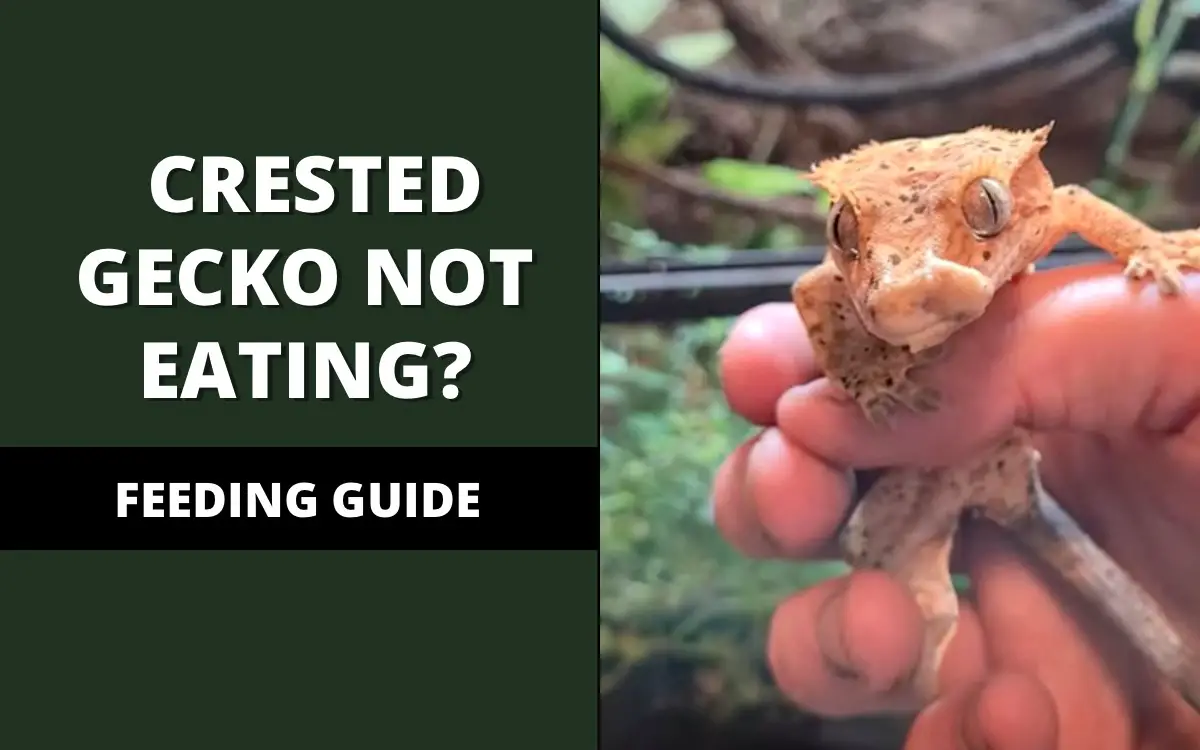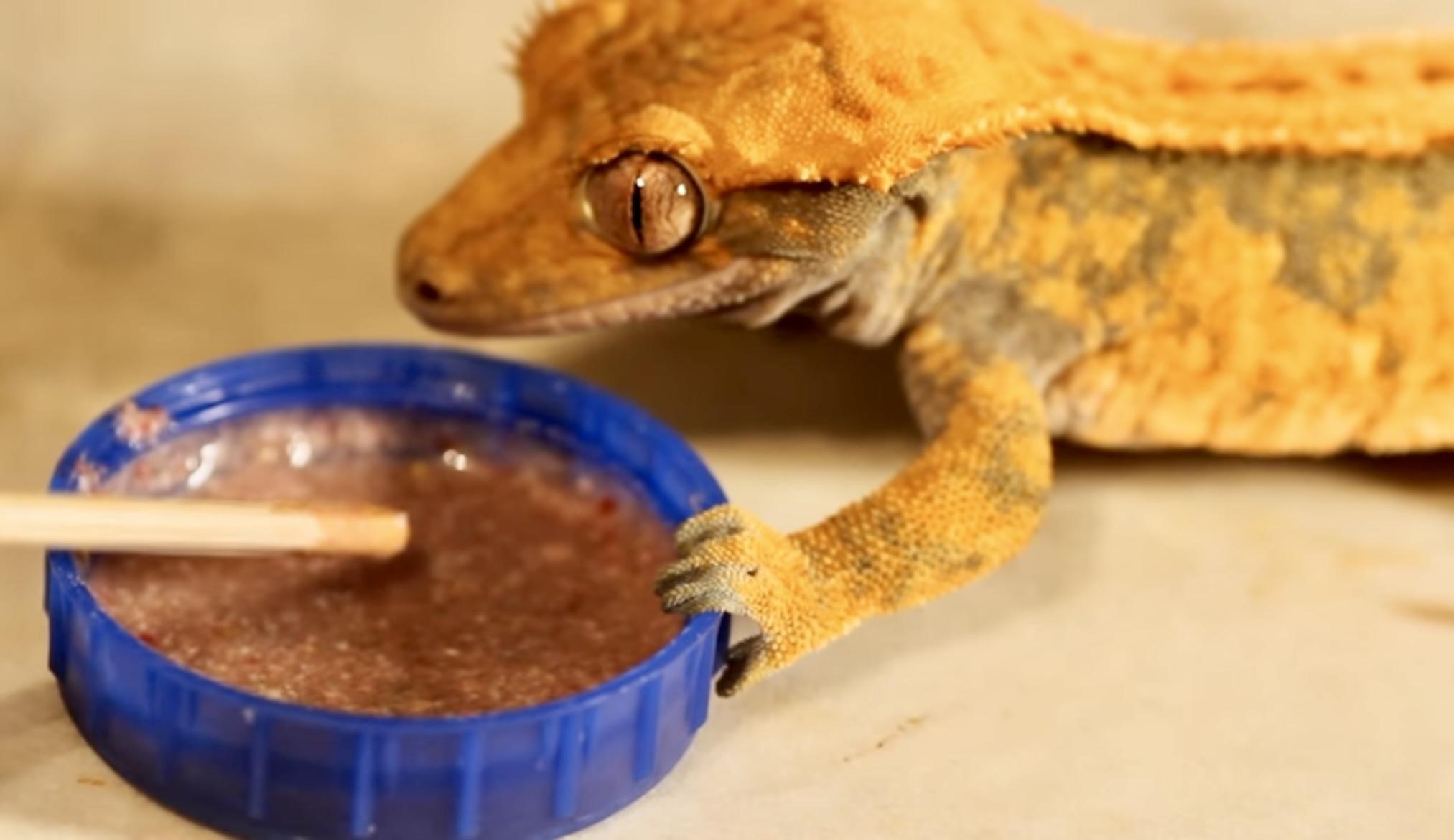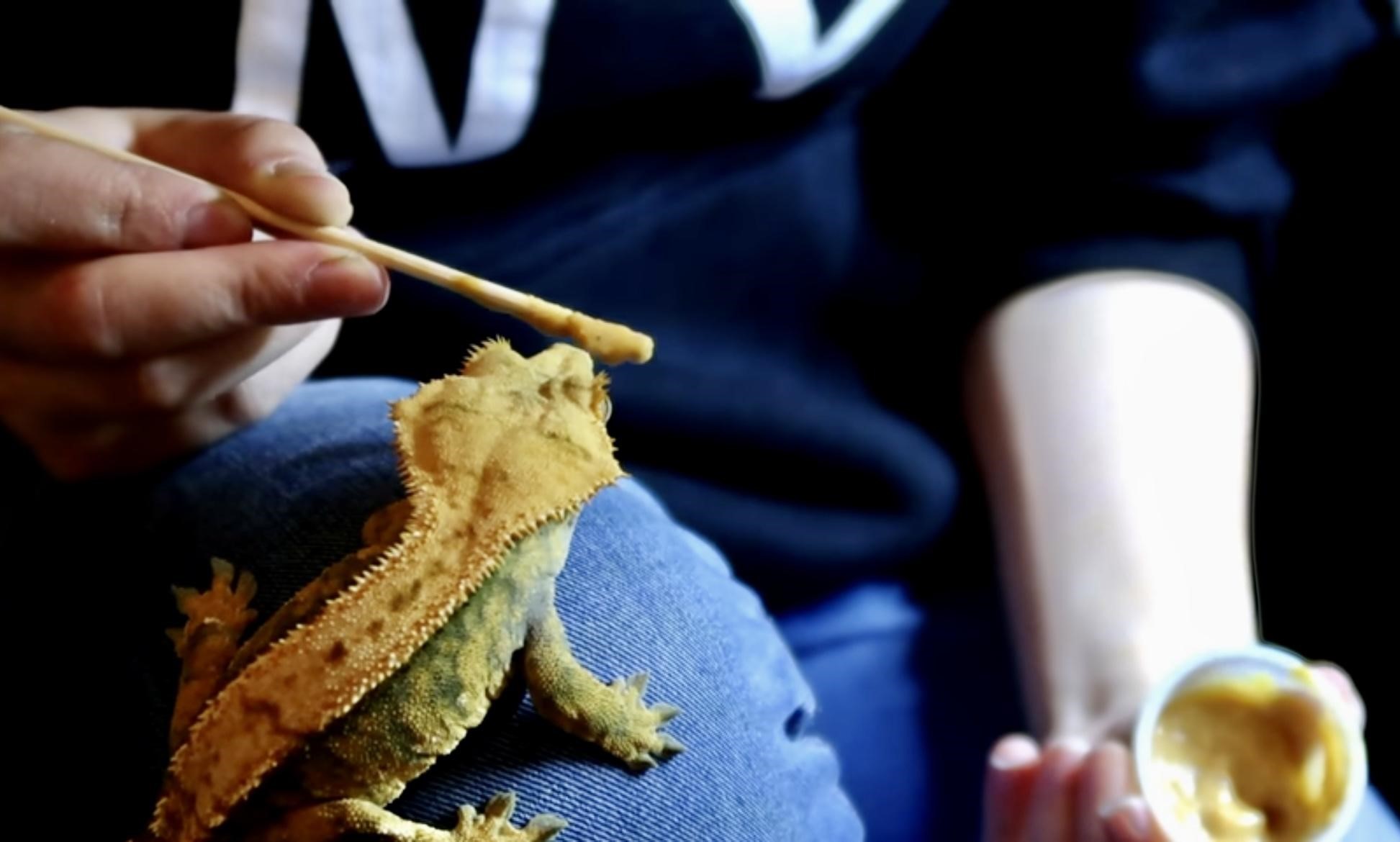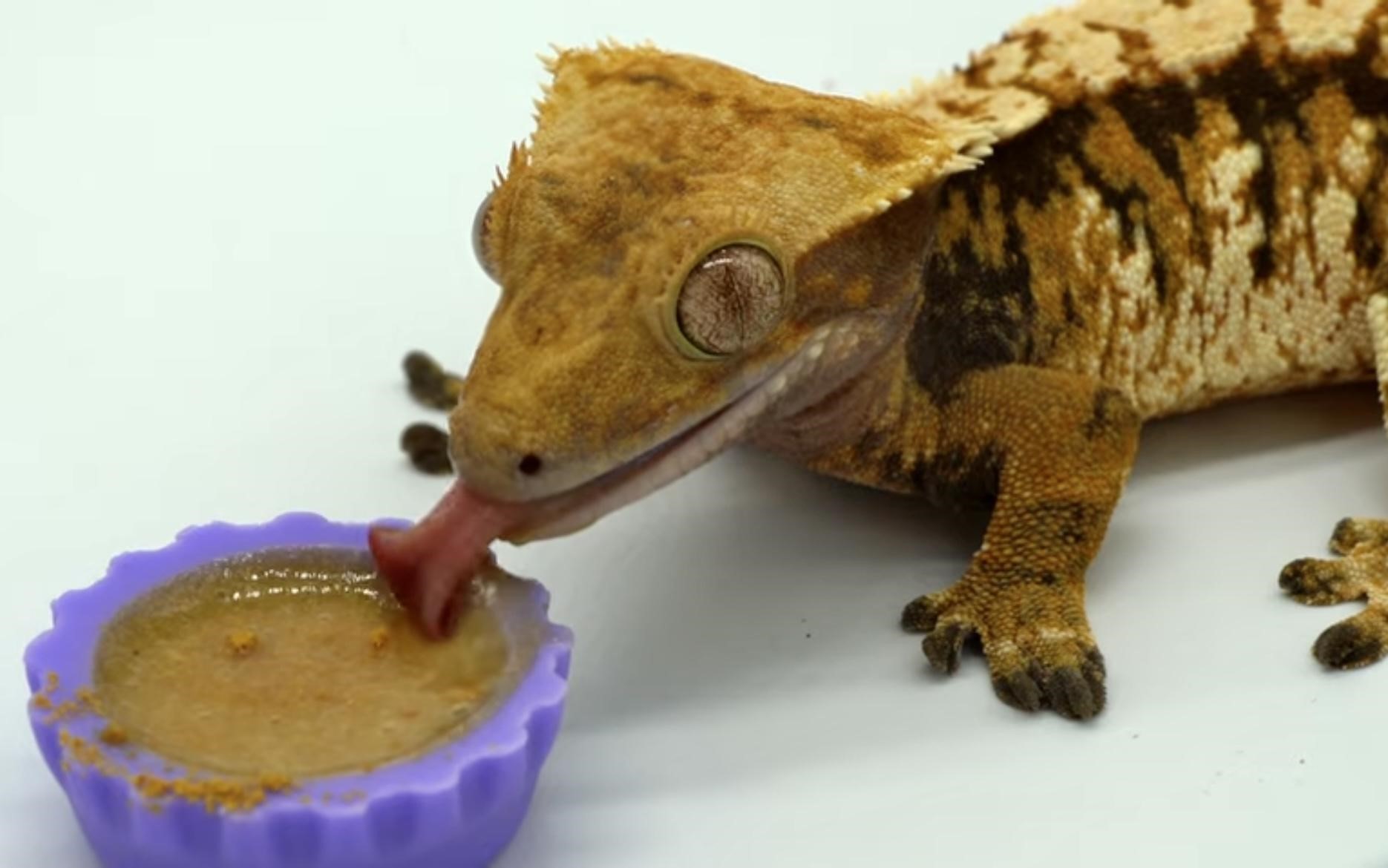Disclaimer: As an Amazon Associate I earn from qualifying purchases. Therefore, we may collect a share of sales from the links on this page, at no extra cost to you!

Is your crested gecko not eating? It can be quite worrisome when your beloved friend isn’t eating like he or she should. Not only is it a sign that something may be wrong, but it can also lead to dangerous health problems if left unchecked.
In this article, we will explore some of the reasons why your crested gecko may not be eating and what you can do about it. We will also provide some helpful tips on how to keep your crestie healthy and happy.
Jump to..
#1. Improper Diet In Crested Geckos

The first, and most likely reason your crestie isn’t eating is because of an improper diet. Crested geckos are strictly insectivorous (they eat insects) and require a variety of different bugs in their diet to stay healthy.
If you’re only feeding them one type of bug, it’s possible that they’re not getting all the nutrition they need. Be sure to give them a mix of different types of bugs (crickets, wax worms, etc.) and supplement their diet with calcium and vitamins as needed.
Some of the healthy diets available for cresties also include:
- Fruit-based Diets (such as Pangea or Repashy): While these diets are more expensive, they provide a complete and balanced diet for your crestie.
- Homemade Diets: Making your own food is an option too, but it’s important to make sure you include the right ingredients and in the right amounts.
- Live Food Diets: Live bugs are the best option for your crestie, as they provide optimal nutrition and a variety of different bugs that can help keep your pet healthy.
- Insectivore Pellets: These are a more convenient option, but they don’t provide the same amount of nutrition as live food.
#2. Stress-Related Eating Issues

Another possible cause for your crestie’s lack of appetite could be related to stress. Crested geckos are notoriously sensitive and can easily become stressed by changes in their environment. To reduce stress, make sure the cage is kept at a comfortable temperature (no more than 85 degrees Fahrenheit during the day and no lower than 75 during the night).
Additionally, give them plenty of hiding spots and make sure they’re not exposed to too much light or noise. In order to reduce stress further, you can also consider providing a hide box filled with moss or some other soft material for them to burrow into.
#3. Illness Issues

If your crestie still isn’t eating after addressing diet and stress issues, then it’s possible they may be ill. The most common cause of illness in cresties is respiratory infections, which can be caused by anything from low temperatures to overcrowded cages. If you suspect your crestie may be sick, it’s best to take them to the vet as soon as possible.
Here are some of the illnesses you need to worry about:
- Respiratory Infections: In addition to causing a loss of appetite, respiratory infections can lead to difficulty breathing, mucous discharge from the nose and mouth, fatigue, and lethargy.
- Gastrointestinal Issues: This can be caused by anything from an improper diet to parasites. Symptoms include vomiting, diarrhea or constipation, and lack of appetite.
- Metabolic Bone Disease: This is typically caused by an inadequate calcium intake. Symptoms include weakness, swelling of the limbs, and muscle tremors.
- Parasites: Internal parasites can cause a variety of problems including loss of appetite, lethargy, diarrhea, weight loss, and more.
#4. The Enclosure Is Too Large Or Too Small
If your crestie’s enclosure is too big, they may feel insecure and become stressed out. On the other hand, if it’s too small, they may not have enough space to move around or hide from predators. Make sure your crestie’s enclosure is the appropriate size for them and provides plenty of hiding spots.
The best way to figure out if your enclosure is the right size for your pet is to measure it. A good rule of thumb is that a crested gecko should have at least 10 gallons of space per adult in their enclosure.
Lastly, make sure your crestie has access to plenty of branches and foliage for them to climb and hide in. This will help them feel secure and more likely to come out to explore their surroundings.
#5. Improper Humidity In The Enclosure
Crested geckos require high humidity levels (60-80%) in their enclosure to stay healthy. If the humidity is too low, your crestie may become dehydrated and stop eating. To increase the humidity level in your crestie’s enclosure, you can use a spray bottle or add a humidifier to the room they’re in.
In addition, providing your crestie with a shallow water bowl can help them stay hydrated and may encourage them to eat. And, of course, don’t forget to mist the enclosure several times a day.
#6. Crested Gecko Is Shedding
Like all reptiles, cresties go through a process called shedding which can last anywhere from two to four weeks.
During this time, your crestie may lose their appetite and become lethargic. This is normal behavior and should not be cause for concern. All you need to do is make sure the enclosure has plenty of humidity and that you are spraying the enclosure several times a day.
#7. Crested Gecko has Grown Up
Due to their rapid growth rate, cresties can sometimes outgrow their enclosure. If this is the case, it’s important to upgrade to a larger enclosure as soon as possible so they have enough room to move around and hide. Additionally, make sure the new enclosure has plenty of hiding spots and adequate humidity levels.
Wrapping up Crested Gecko not eating
If your crestie is not eating, it’s important to take the time to figure out why. The most common causes are improper diet, stress, illness, an improperly sized enclosure, and shedding. By taking the time to address each of these issues, you can ensure your crestie stays healthy and happy for years to come.
While it can be difficult to diagnose a crestie’s issue on your own, visiting the vet can help you determine the cause and provide treatment as needed. When in doubt, it’s always best to err on the side of caution and take them for a check-up.
Once you have determined the underlying cause of their lack of appetite, you can take the necessary steps to help your crestie get back on track. With the proper care and attention, you can ensure your crestie enjoys a long and happy life.
